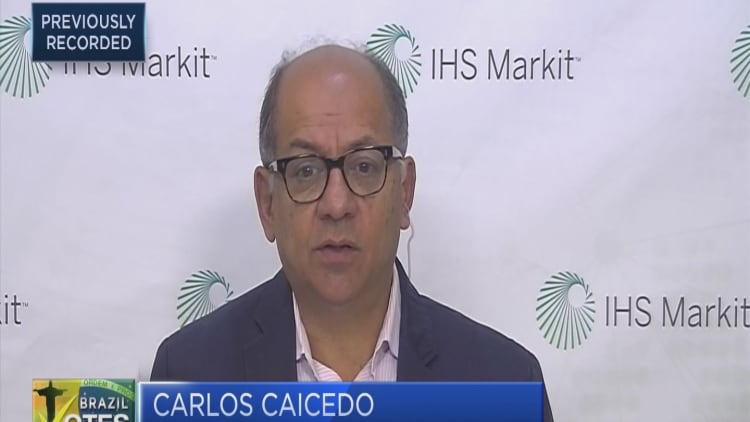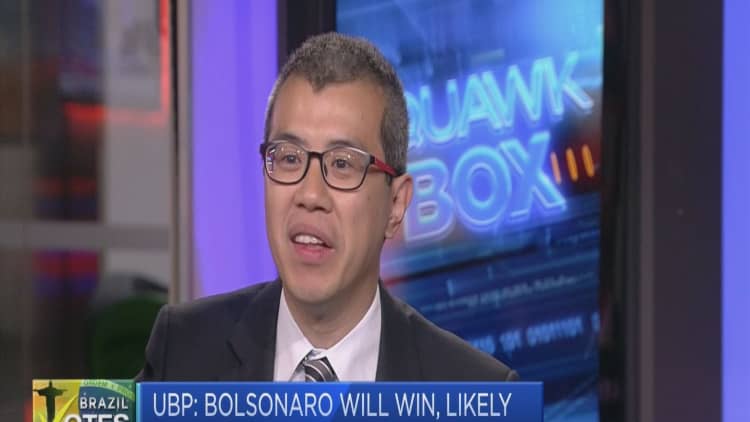
Brazil's highly-polarized presidential election should be of little comfort to global investors, analysts told CNBC on Friday.
Voters in Latin America's largest economy head to the polls on Sunday, in a vote many consider to be the most important ballot in the country's history.
Leading the race to become Brazil's next commander-in-chief is former military officer and far-right candidate Jair Bolsonaro. Behind him, according to the latest opinion polls, is leftist candidate Fernando Haddad, a former Sao Paolo mayor who has taken the baton from former President Luiz Inacio Lula Da Silva.
"There is a significant element of wishful thinking from the markets (when) looking at Bolsonaro as a pro-business candidate," Carlos Caicedo, senior principal analyst for Latin America at IHS Markit, a London-based research firm, told CNBC's "Street Signs" on Friday.
'Unknown entity'
Brazilian markets have rallied on the prospect of Bolsonaro preventing a return to power by the left-leaning Workers' Party, which many investors blame for plunging the country into its worst recession in 2015 and 2016.
Yet, with less than 48 hours to go until Brazil's first-round vote, the economic position of Bolsonaro remains unclear.
Last week, Brazil's leading presidential candidate asked his economic advisor Paulo Guedes and his running mate Hamilton Mourao to refrain from making public statements after contradictions emerged over economic policy.
Bolsonaro has previously admitted ignorance over a range of economic issues, thus making him an "unknown entity" ahead of the vote, Caicedo said.
"I don't think the market should take it at face value that (Bolsonaro) is a pro-business candidate… The main issue here is that there is no clarity about how to tackle the huge fiscal deficit, the pension system — which is in total tatters — and the public debt," Caicedo added.
Brazilian voters will choose between 13 presidential candidates on Sunday, five of whom could plausibly secure enough votes in first round voting.
But, if — as most external observers expect — no candidate wins a majority this weekend, the top two vote winners will face each other in a run-off vote on October 28.
Bolsonaro and Haddad are seen running practically neck-and-neck in a simulated second-round run-off vote later this month.
Corruption scandal
Koon Chow, macro and FX strategist at UBP, told CNBC on Friday that Brazil's presidential vote was a classic example of the "polarization theme we have seen in so many countries" around the world.
"You have got someone who is fairly right-leaning in a nationalistic way and then someone who is pretty much more old school, (with a view that) state knows best," Chow said.
"Bolsonaro is not as good as the markets hope for and Haddad is not as bad," he added.

Brazil is still reeling from a massive corruption scandal, with nearly half of voters suggesting they would never support the current frontrunner, Bolsonaro, and more than 40 percent saying they would never consider supporting the second-most popular candidate, Haddad.


